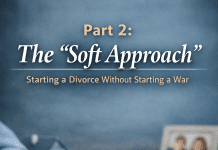![]()
Punching Walls Can Be Domestic Violence: In New York, violent, intimidating acts like punching walls or breaking objects can be considered domestic violence even without direct physical harm.
Courts Focus on Threatening Behavior: Domestic violence includes acts that create fear, intimidation, or emotional harm—not just physical injuries—impacting custody and Orders of Protection.
Document and Report Intimidating Incidents: Victims should carefully document property damage, threats, and emotional abuse to support their case in court.
Table of Contents
Introduction
Domestic violence is often thought of in terms of physical abuse between partners, but the law encompasses a broader scope that many may not be aware of. Understanding these legal definitions is crucial to recognizing and preventing all forms of domestic violence. Let’s be clear, punching a wall can lead to an arrest and the court issuing an order of protection.
Domestic Violence: Aggressive Actions Aren’t Limited to People
This blog addresses domestic violence, but not in the way you might traditionally think about it. Instead, we’ll discuss domestic violence under the law, particularly how it pertains to the destruction of property in your own home.
Domestic Violence Extended to Property Damage
There are instances where people, often men, become enraged at their spouse or girlfriend. They know that striking their partner will result in serious legal consequences, so instead, they decide to take their anger out on inanimate objects. A man might turn around and punch the wall, thinking that by not hitting his partner, he’s avoiding criminal repercussions. However, this assumption is incorrect.
Several years ago, the law changed to classify the destruction of property within your home as domestic violence. This means that if you break your own property out of anger, you’ve committed a felony under New York law. This is enforceable in both criminal and family courts.
For example, if you get angry and punch a hole in the wall or break a door or TV, these actions are considered domestic violence. The law treats breaking anything in the house as an offense, even though it’s your own property.
Whether you agree with it or not, the law recognizes this type of behavior as domestic abuse. Here’s a great non-legal article explaining the human costs of this type of abuse. https://createsoulspace.medium.com/punching-holes-in-walls-is-domestic-violence-da7edb234d02
The Legal Repercussions
So you may think that by not hitting your partner you are doing the right thing—which indeed you are. But redirecting that anger towards objects in your home can still land you in serious legal trouble. The safest and best approach is to refrain from hitting anything—be it your partner or the wall.
If you break a wall or an object and your partner calls the police in New York, they will arrest you. This behavior is a felony. Under the law of criminal mischief, if you break property belonging to another, it is a crime.
The common complaint I hear is that “But, I own that television, and I can break it if I want.” Unfortunately, the law changed several years ago. Now, the law defines property of another this way: “‘Property of another’ shall include all property in which another
person has an ownership interest, whether or not a person who damages
such property, or any other person, may also have an interest in such
property.”
What this means, is if you rent, and punch the wall you have damaged the property of another: the landlord. If you are married then all property bought during marriage is marital. So, that TV? Well, your wife is a part owner.
I know someone will try to be cute and say, “Hey, my girlfriend moved in with me, and everything is mine. So, I can break whatever I want, and not get into trouble.” Well, not exactly, because you will run afoul of other laws, harassment and menacing.
Your wife or partner can have you arrested, go to Family Court to get an order of protection or do both. Here’s an article about Orders of Protection.
The recommended course of action? Walk away. Take your anger outside, go for a walk, and leave the situation. This not only prevents any form of violence but also keeps you on the right side of the law.
Need Help? Reach Out
If you have questions about this specific issue or any other aspect of domestic violence, don’t hesitate to contact us at Port and Sava. We are here to help you navigate these complicated situations and move forward with your life. Call us at (516) 352-2999 for a free 15 minute telephone consultation.
Remember, avoiding physical confrontation entirely—whether with people or objects—is the best way to stay within the law and protect the well-being of everyone involved.
Frequently Asked Questions: Punching a Wall and Domestic Violence in New York
1. Is punching a wall considered domestic violence?
Yes. In New York, punching a wall, breaking objects, or destroying property during a domestic dispute can be classified as domestic violence, especially if it is done to intimidate, threaten, or frighten another person.
2. Do I have to be physically hit for it to be domestic violence?
No. Domestic violence includes acts that cause emotional harm, fear, or psychological intimidation, even if no physical contact occurs.
3. Can I get an Order of Protection if my partner punched a wall but didn’t touch me?
Yes. If you feel threatened, intimidated, or unsafe, you can request an Order of Protection based on acts of destruction, threats, or emotional abuse.
4. How should I document incidents like wall-punching or property destruction?
Take photographs of the damage, write down exactly what happened (including date, time, and any witnesses), and save any communications related to the incident (texts, voicemails, emails).
5. What if my partner says they were just angry and didn’t mean to scare me?
Intent matters less than the impact on you. If their behavior caused you to fear for your safety, the court will take it seriously when considering custody, visitation, or protective orders.
6. Will the court consider wall-punching when deciding child custody?
Yes. Acts of violence—even against property—can be viewed as evidence of a volatile or unsafe environment, which the court must consider when making custody decisions.
7. Do I have to call the police if someone punches a wall during an argument?
You are not required to call the police, but doing so can create an official record of the incident, which may strengthen your case if you later seek an Order of Protection or file for custody.



![Do I Have to Pay Child Support if I’m Not the Biological Father? The 3 Critical Facts [2025 Legal Guide] Metaphorical picture of the child support obligation when a perosn is not the biological father.](https://nydivorcefacts.com/wp-content/uploads/2025/08/Estoppel.png)

![The Critical Factors On How Domestic Violence Affects Child Custody and Visitation Rights in NY [2025 Guide] Domestic violence affects Child Custody](https://nydivorcefacts.com/wp-content/uploads/2025/03/a3295ac6-eaea-4c38-901c-4d8562f852e5-218x150.png)














